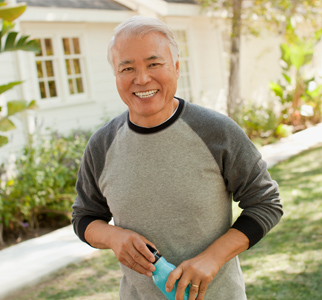When the Weather Heats Up, Stay Cool for Your Heart
Summer means more time to do the activities you love, such as taking long early morning walks or working in the garden. But it’s important to be aware of the temperature outside.
That’s because heart failure places you at a higher risk for heat-related illnesses such as heat stroke. Heat stroke is a life-threatening condition that occurs when the body can’t regulate its temperature.

Why is your risk higher? In heart failure, the cardiovascular and nervous systems don’t work as they should. Research suggests that this affects the body’s ability to maintain temperature control. Also, medicines used to treat heart conditions may make it harder for your body to cool itself by perspiring.
Watch for warning signs
Heat stroke is an emergency. Those suffering symptoms need to move to a cool place and get medical help right away. Symptoms of heat stroke include:
-
A body temperature above 103°F (39.4°C)
-
Red, hot, dry, or damp skin
-
A rapid, strong pulse
-
A throbbing headache
-
Dizziness, nausea, or confusion
-
Unconsciousness
A little prevention goes a long way
You can guard against heat stroke by:
-
Being aware. Ask your healthcare provider if the medicines you take make you more likely to get heat-related illness.
-
Drinking plenty of fluids each day. Don’t have drinks with caffeine, alcohol, or lots of sugar. If your provider limits your liquids, ask how much you should drink when it’s hot.
-
Wearing lightweight, light-colored, loose-fitting clothing.
-
Staying in an air-conditioned place as much as possible. If your home does have not air conditioning, go to a mall, the movies, or a friend’s house. Spending a few hours in air conditioning can help your body stay cooler when you go back into the heat.
-
Taking a cool shower or bath.
Online Medical Reviewer:
McDonough, Brian, MD
Date Last Reviewed:
4/1/2019
© 2000-2025 The StayWell Company, LLC. All rights reserved. This information is not intended as a substitute for professional medical care. Always follow your healthcare professional's instructions.